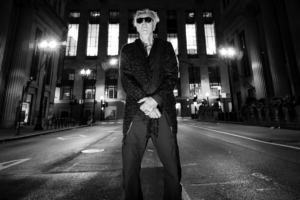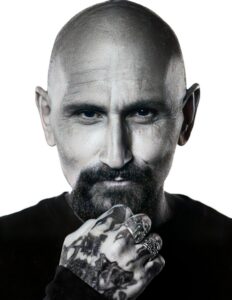KELAKOS – The Greek American Band Of The 1970s

Interview with: George Michael Kelakos Haberstroh, guitarist Mark Sisson,
bassist Lincoln Bloomfield, and drummer Carl Canedy.
1. Can you please introduce the band and inform us about the formation of Kelakos?
George: Ok I’ll introduce the band …….And the first nominees for the 2016 Rock and roll hall of fame are the band Kelakos, whose members include multi-talented musician/producer drummer Carl Canedy. Carl’s latter work with the Rods is legendary…he can just flat out beat them skins. Next is singer bass player keyboard master arranger producer composer Lincoln Bloomfield who possesses one of the best musical minds certainly I’ve ever known. And lastly we have Seattle’s Mark Sisson, who came to the east coast with musical powers far beyond that of mortal man. Mark can bend strings with his bare hands and has been getting into pedal steel guitar along with playing a mean ‘57 gold top Les Paul once owned by Dickey Betts of Allman Brothers fame. And lastly there’s me – George Kelakos Haberstroh.
Long, long ago in a sleepy Massachusetts seashore town called Cohasset located along the south shore halfway between Boston and Cape Cod, George, Mark, and Linc went to high school together and formed the band Emergency Exit which originally included drummer Peter Laney and B-3/Leslie keyboardist Peter Guilfoyle. Drummer Nate Murray was our mainstay friend and drummer for years…
but as fate would have it, in time Nate bowed out as drummer and the search for the ultimate drummer who could take us to the top was on. We had already worked with a dozen drummers in six years when
our band – by then using the short-lived name The Criminals – moved into a country house in a nearby town bearing the same name as Jamaica’s capital. One night Mark and Linc came home after clubbing and searching for drummers, and were raving about this amazing drummer they had seen playing with an 11-piece band, and he was coming to jam with us in our Kingston basement ‘nightclub’. The music clicked from the start. We somehow convinced Carl to join, changed the name to Kelakos … and the rest is musical history…!
2. How different was the 1970s era compared to the 2010s, in terms of music business?
Carl: In 1970s the DIY business model didn’t exist. You needed a record label, preferably a major label such as Columbia, RCA, Capitol, etc. Without a label it was nearly impossible to have any chance at success back then. By this decade of the 2010s, the music business and how we listen to music has changed dramatically. The way we buy and obtain music has also changed (sadly not to the financial benefit of most musicians). Fortunately vinyl has made a bit of a comeback. I fear it’s mostly for the collectability factor but I’m glad it still exists. I do love that I can listen to Sirius FM in my car, carry thousands of songs with me on my iPod, and have iTunes streaming on my cell phone. I get to listen to music anytime, anywhere.

3. What was the musical and political statement of the band?
Linc: While there was a clear feeling of generational protest in the music of the sixties and seventies, I think all of us were drawn to rock, pop, blues etc. more by the power and beauty of the sounds, the melodies, the emotions and the spectacle. None of us was looking to be the next Bob Dylan. We were in grade school when the Beatles came on the scene, and junior high school when Hendrix and Cream, the Yardbirds and the Who showed the explosive excitement of this music. From the very beginning we all cared about the sounds of the guitars, drums, and vocal harmonies of this music. As young teenagers watching live bands we all felt the chills from drum solos and catchy hit songs. By the time the four of us finally had the chance to put our own original studio recordings together, years later, I think you see how many different styles and moods we wanted to express, and how much effort we made to record whatever sounds we thought were right for the song, including Hammond B-3 and Leslies, vibes, Rhodes and grand piano, acoustic and electric 12-string guitars, even string and horn sections as well as exotic percussion sets like Octoban and North drums. While some of the music during that time had a political message, our passion was the music itself and the power it had to captivate us and our audiences.
4. If you could turn back time, what would you change regarding the business strategy of the band?
Carl: I would have pushed us to record sooner and more quickly. I would like to have had product out in the marketplace long before we did. We might have tried a more regional approach to marketing. I do think that had we recorded our first album earlier, and for much less money, releasing only music that was more in keeping with who we were as a live band, we may have been able to continue to record and improve our skills both as recording artists and as producers as well. “Monday morning quarterbacking” as American football fans like to say, is almost always done with 20/20 vision. If only…

5. What type of musical influences did you have?
George: Like most people, I find that certain songs play like a movie soundtrack that takes you back in your memory when it all was magical time for you …and I’d say I was moved by certain songs and drawn to them rather than just every single thing an artist I like does. Of course, some of those songs are by the Beatles, the Stones, the Kinks, Elvis, Jimi, Deep Purple,Zeppelin, Steely Dan,CSNY, the Eagles,ZZ,Creedence,Quicksilver,on and on…every hot guitar player on the planet including Paige,Beck,Clapton, Winter, Gibbons,Zappa,Buchanan,Knopfler, Santana , Dimeola,Charlie Christian, Mahvishnu, Bensonand of course Stevie Ray and Skydog,and myriads of others I’ll wish I had memory enough to have mentioned long after this interview is done…and great voices like Anita Baker, Luther Vandross,Mariah,Michael McDonald,Stevie, Whitney,MJ, Sade,Toni Braxton,plus so many many great sax players like Grover Washington,Stanley Turrentine and Coltrane, incredible keyboardists like Herbie Hancock and Jan hammer. Some of their great songs and collaborations became the soundtrack of my life,just like great music does for everyone….
6. Do you have a mission as a musician?
George: Music… the final frontier…. These are the recordings of the band Kelakos, its lifelong mission to explore strange new songs, to seek out new sounds and badass arrangements, to boldly go where no band has gone before…..(cue Star Trek theme)
If you truly feel the love and power of music, you have no other choice…
Carl: I’m still doing my best to become a better musician. It seems I learn new things all the time and in the process realize the “holes” in my playing that I wish I’d shored up years ago. All in all. it keeps me getting up and playing every day.

7. How did the political status of the US in the 1970s influence the rock scene?
Linc: I am sure that you would get a different answer from every musician you ask. People too young to have been ‘of age’ when Woodstock happened in 1969 may not appreciate that this phenomenal event markednot just the pinnacle but the end of an era, of the disorganized but amazingly creative sixties, and the start of a more business-driven era where bands, their musical genres, their album releases and concerts were handled more professionally and profitably. No more Beatles albums where every song had a completely different vibe. Hendrix, Jim Morrison, Janis Joplin, Brian Jones, Keith Moon and a number of others were already gone. But great rock musicians and bands followed in their footsteps. While the sixties in America were shaped by the Vietnam War and the assassinations of John and Robert Kennedy and Martin Luther King Jr., the seventies had a hard edge as well, as the war continued on and ended in retreat, while President Nixon resigned in scandal and the country suffered hard economic times. None of us in the band felt that we were missing out on high-paying jobs elsewhere; everyone we knew was getting by on very little money but would be out in the clubs at night. Like all musicians, we measured our success by our live performances, the songs we wrote, and ultimately the recordings we made. While the lyrics may not have talked about political issues, our music was very dynamic and dramatic, and I think that intensity reflected the hopes and fears young people felt during the seventies.
8. Can you tell me more about the current release of Kelakos?
Carl: I believe the real story of the re-release is about Linc. I’ve been the archivist for Kelakos and The Rods. I’ve kept so many reel to reel tapes safe for decades. When Linc learned that I had the original masters he set into motion a plan to re-mix the album as it might have been years ago had we had a major label budget. He had certain criteria with regard to what would and wouldn’t be done to the recordings. Rule 1 was no re-recording any parts. What you hear is what we played years ago. At first I wanted to retrigger my drums and overdub vocal parts. Linc adamantly refused. I wasn’t thrilled at first but realized quickly that he was right. He was the keeper of the integrity of the recording which ultimately made it a much better project. His mixes allowed the band’s performances to shine through. I’m very happy with what he did with the album. I’ve recorded and mixed many albums on my own but honestly I could have not have come close to what Linc did for this project. A true labor of love! I am indebted to him for his hard work.

9. Why did the band split up?
George: Wait. No. Did the band split up? First I’ve heard of it …..but I guess that sure explains why there hasn’t been a full band rehearsal in 38 years…..(funny emoji city)
No, truly I believe ultimately it was disappointment that our collective musical reach for the skies had fallen short that split up the band, and yet each of us tried our best moving on, still keeping music alive in our hearts all these years….
Carl: I believe that when a band commits to putting out original music, and making an all-out effort to find an audience for their music, they have two paths to follow. One is success on a level that will sustain them for a number of years. The other is failure, which leaves them with the option of continuing on, struggling without their “dream” motivating them. Option 2 is very difficult and unfortunately we fell into the Option 2 category. It was time for each of us to find a different path. Sadly, it was never because we didn’t believe in the music; and Linc has helped us demonstrate that with the re-issue of Uncorked.
10. Where are the members now?
Mark: Well, I headed west, intending to go back to Seattle, Washington, where I had my first gigs in the sixties. When I got to Denver, Colorado, I began a career in the retail music business. Selling gear to musicians became my new passion. I played with an original band KELLY MCGUINESS and a top 40 band, DIMENSION X. From there I went to Florida and played with George –great original songs and singing. I went to Seattle in the early 90’s, staying in retail in the music business. It was like working in a music store in San Francisco in the sixties: you never know who would walk in–Soundgarden–Nirvana–Pearl Jam –Motorhead–Tool–Guns and Roses…. I followed the jazz fusion scene–Bill Frisell, Skerik and Tim Young (now with the Late Late Show with James Corden). I kept active playing, sitting in all over Seattle. I’m now back in Florida, playing-with George –and still the music flows.
Carl: I’m still playing my drums with The Rods and other projects. I just finished a project with the members of TKO. We recorded a tribute to Lemmy, “Ace of Spades”. The song is available on iTunes, Amazon and all digital outlets including Youtube.
11. Is there any unreleased material of the band?
Mark: Our original music goes back to before you could afford a home recording set up. There are early recordings on cassette like “CHOC-O-NUT” and there is plenty of material including originals, just not studio-recorded. WAAL BINGHAMTON NY was the band’s last recording. I have a cassette version. There are unreleased songs there.
12. Do you have any plans for future band releases?
George: No immediate plans for any formal releases …other than Carl’s killer solo CD Headbanger(http://www.cdbaby.com/cd/carlcanedy) where Linc plays bass on a song, and then there’s the release of Linc’s song “(Got to) Save the World” (as LB Junior) – I was lucky enough to play some guitar on that intense collaboration of Linc and his multi-talented daughter Noelle….if you haven’t seen it, you’ll find it on the Kelakos Uncorked Facebook page as well as YouTube (http://bit.ly/1UYDdiX), and worth checking out….
Wait, this just in …a mysterious experimental song that we will call for now “FFF”—where Mark, Carl, Linc and George all play is starting to form inside my tropical depression…nothing formal…..don’t look now, but the word on the street is that the tracks have begun to come together in Washington……!
Carl: I’m up for doing any and all recording. I know that Linc and George have strong material. I’m not sure what Mark may have but I also have a song or two that may work. It’s great to be back working with the guys.

Band info: http://www.kelakosband.com/
Photos are courtesy of the band


